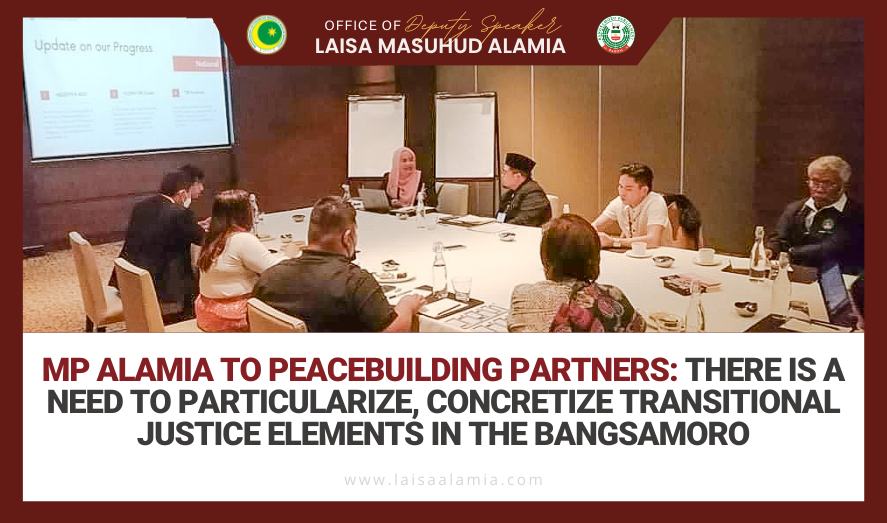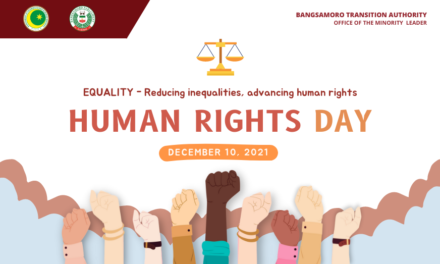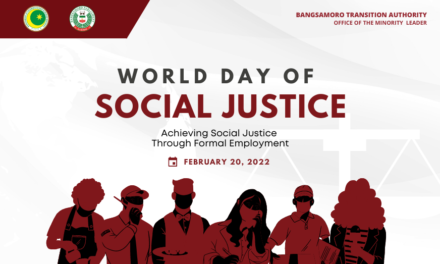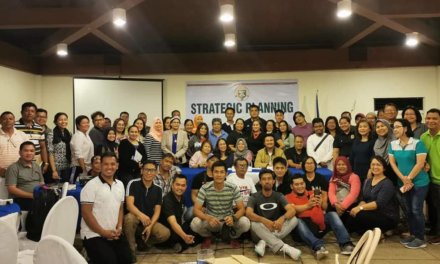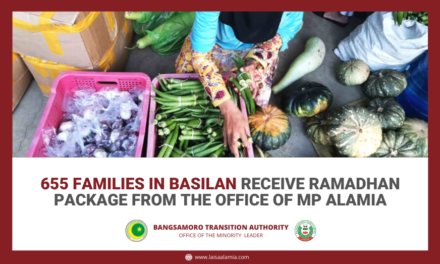As part of its continuing work to counter violent extremism, the Global Community Engagement and Resilience Fund (GCERF) held Voices of Resilience: Building Peaceful Communities, an event in honor of a national community of practice (CoP), last October 24-26,2022 at the New World Makati Hotel in Makati City.
During the event Bangsamoro Parliament Deputy Speaker MP Atty. Laisa Masuhud Alamia delivered a report on the progress, challenges, and opportunities in the pursuit of TJR for the Bangsamoro people. Part of her presentation was a rundown of six bills she filed between 2020 and 2021 to “concretize and particularize the elements of transitional justice in the Bangsamoro.”
“These bills,” she said are “anchored on the immediate needs of different sectors, based on recommendations made by the TJR Commission,” while also noting the priorities and available resources in the Bangsamoro Government during its political transition.
“Any approach to transitional justice and reconciliation must be participative and empowering, making sure to account for gender-specific concerns and the needs of vulnerable and marginalized sectors,” MP Alamia said as she addressed an audience consisting of local organizations and international peacebuilding partners in the Bangsamoro. “Any attempt at transitional justice and reconciliation,” she stressed, “must lift the imposing weight of grief and loss from the shoulders of those who are yet to reap the fruits of their struggle toward just and lasting peace.”
Also in attendance during the event were New Zealand Minister for Pacific Peoples and Associate Foreign Affairs Minister Aupito William Sio, New Zealand Ambassador to the Philippines Peter Kell, GCERF Country Manager Basile Ema Ebede, Australian Embassy representative Jennifer Bennett, and representatives of civil society organizations based mostly in the Bangsamoro and Mindanao.
GCERF is a Swiss not-for-profit organization supporting local initiatives that address local drivers of violent extremism and enhance community resilience. Having adopted a CoP strategy in the Philippines, it has lent its assistance to the Department of Interior and Local Government (DILG) as the agency established a Country Support Mechanism (CSM) involving key stakeholders and partners in the region.
The lead and co-lead of the CoP program in the Philippines are the Initiatives for International Dialogue (IID) and the Initiatives for Dialogue and Empowerment through Alternative Legal Services (IDEALS), respectively.

